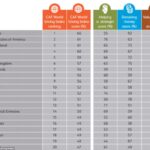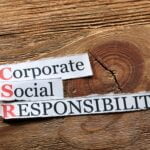Top 3 Business Imperatives for CSR in the COVID-19 Era
Without a doubt, COVID-19 has had a pervasive impact on business ecosystems globally. Industries such as travel, energy, and retail have started facing significant headwinds as they slog through the remainder of 2020.
In response to these headwinds, many key business functions have been burdened, adjusting to a new reality. HR is furloughing and laying-off workers while attempting to salvage workplace culture. IT is doubling down in infrastructure and security, identifying risks across disparate technology systems, many of which have been overburdened with so many people working remotely. Executive teams and finance are reprioritizing, strategizing, and, of course, trimming the fat.
Amidst all of this cross-functional activity, however, many wonder about the future of corporate social responsibility and sustainability. Will there be a downsizing of CSR and Sustainability initiatives, given the consensus around their long-term workplace culture, commercial, and societal impact? Or, will CSR and Sustainability become an even more compelling investment, given the widespread negative sentiment around corporations in relation to government stimulus programs, ethical violations, and consumer-perceived greed?
At Encast, we’ve found that both seem to be true to varying degrees across industries and geographies. In this blog-post, we wanted to, in a prescriptive manner, provide our community of CSR and Sustainability professionals with tactical recommendations that they can use to navigate these tough times.
Imperative One: Calibrate Materiality Assessments
Many organizations conduct materiality assessments to determine the issues that are most important to their key internal and external stakeholders. Ultimately, these issues are then ranked based on the degree to which they impact the business, short and long-term. Generally, these materiality assessments are not refreshed very frequently, given the number of systems of record that must be analyzed in aggregate and the months-long turnaround required for such reports. This has to change in order for CSR professionals to effectively navigate COVID-19. There is no doubt that the top issues for key stakeholders have dramatically evolved. Consequently, the top drivers of business impact have correspondingly evolved. In order to tackle these challenges, CSR professionals must find nimble and cost-efficient yet comprehensive methods for conducting materiality assessments. This investment provides necessary data for evaluating programmatic impact, which assists in prioritizing high impact initiatives.
Imperative Two: Demonstrate Budgetary Discipline to the C-Suite
Over the years, there has been lots of dialogue, primarily from CEOs and CFOs, about measuring impact in the CSR and Sustainability ecosystem. However, during the bull-market, which, until recently, ran since 2007, many businesses have invested in CSR not because they created demonstrable impact for internal and external stakeholders, but because they were inspirational. Will CSR professionals truly have the discipline to optimize their budgets in a manner that resonates with the C-Suite? They must. If they don’t, it will result in a tremendous decline in credibility for the profession. To make these kinds of tough budgetary decisions, we, as a profession, must institute compelling quantitative methods using the universal language of business: numbers.
Imperative Three: Be Transparent with Internal & External Stakeholders
The reality of the next 18-24 months is that most businesses are going to cut back. Not just in CSR and Sustainability, but all kinds of programs and functions such as marketing, technology, and real estate. Rather than concealing the budgetary roadmaps to key stakeholders, we believe it’s incredibly important for CSR and Sustainability departments to shine a brighter light on social impact initiatives with internal and external stakeholders, with rejuvenated and new campaigns, backed by data. Given the rate at which layoffs are increasing, one such opportunity might be with staff. Transparent communication about shifts in the corporate strategy, and especially with workplace and millennial-inspiring programs like CSR, is a critical strategy for maintaining a stable corporate culture amidst the chaos of COVID-19.
Conclusion
In summary, we believe that this needs to be a more active time for CSR and Sustainability: not the other way around. The last time we experienced a major recession, CSR and Sustainability functions were not nearly as mature and high impact to consumer sentiment, workplace culture, and investor relations as they are today. CSR and Sustainability initiatives have dramatically increased in prominence as a key differentiator. As a profession, we’ve succeeded in convincing our C-suite and management teams that these programs will deliver value for our businesses. Even so, we face a major reckoning. How strategists and tacticians in the space navigate change these days will affect their long-term prominence within and without.



































































































































